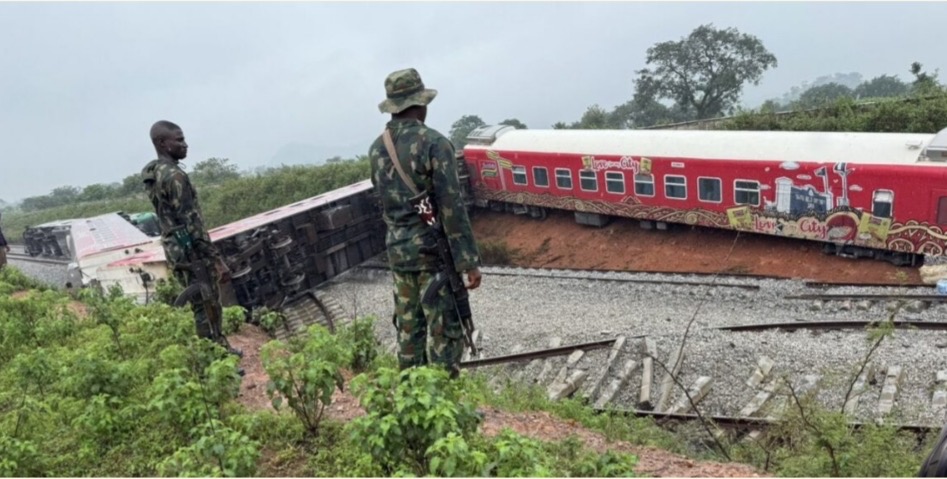
The Nigerian Safety Investigation Bureau (NSIB) has launched a formal investigation into Tuesday’s Abuja–Kaduna train derailment, which left at least six passengers injured.
The incident occurred at about 11:09 a.m. on August 26, 2025, between Kubwa and Asham stations (KM-49) along the busy Abuja–Kaduna rail corridor. According to officials, no fatalities were recorded, though some outlets reported that as many as 14 passengers sustained varying degrees of injury.
The NSIB confirmed it had dispatched a “go-team” of investigators to the crash site to collect evidence, interview stakeholders, and determine the root causes of the derailment. The agency emphasized that the process will be independent and transparent, with safety recommendations expected at the conclusion of the probe.
Kaduna State Governor Uba Sani immediately mobilized emergency services, including the State Emergency Management Agency (SEMA) and local councils, to assist with evacuation, treatment of the injured, and psychological support for passengers.
The Nigerian Railway Corporation (NRC) also confirmed the derailment, noting that rescue and medical teams were on the ground. Passengers were later evacuated back to Abuja, while services along the corridor were temporarily suspended.
From Brazil, where he is on official visit, President Bola Ahmed Tinubu expressed sadness over the incident, prayed for the swift recovery of the injured, and pledged that preventive measures will be taken to enhance rail safety.
The derailment has renewed concerns over Nigeria’s rail infrastructure. Industry observers note that this marks the 188th train derailment since 2019, a period plagued by vandalism, poor maintenance, and security lapses. Reports indicate that more than 150,000 rail clips were stolen nationwide between 2022 and 2023, weakening tracks and heightening derailment risks—particularly along the Abuja–Kaduna route, one of Nigeria’s busiest passenger corridors.
As investigations continue, the NSIB has assured the public that its findings will guide urgent reforms to improve railway safety and restore confidence in the nation’s rail transport system.
